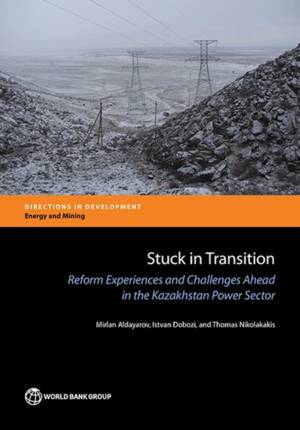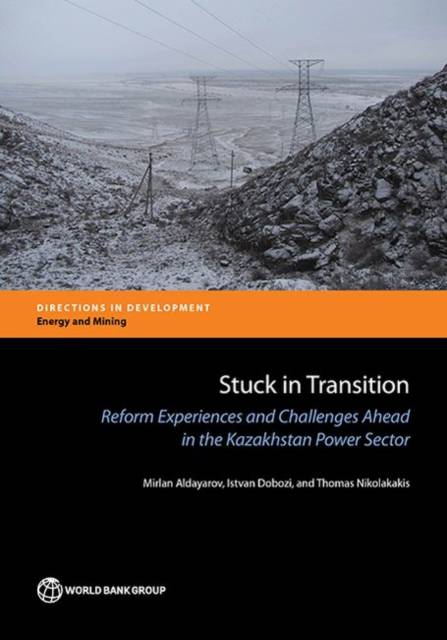
- Retrait gratuit dans votre magasin Club
- 7.000.000 titres dans notre catalogue
- Payer en toute sécurité
- Toujours un magasin près de chez vous
- Retrait gratuit dans votre magasin Club
- 7.000.0000 titres dans notre catalogue
- Payer en toute sécurité
- Toujours un magasin près de chez vous
Stuck in Transition
Reform Experiences and Challenges Ahead in the Kazakhstan Power Sector
Mirlan Aldayarov, Istvan Dobozi, Thomas NikolakakisDescription
The large-scale transformation of Kazakhstan's power sector following independence in 1991 was reflected by the country's move toward liberalizing the market and implementing sector regulation. As an early adopter of a liberalized multimarket model consisting of bilateral, spot, balancing, ancillary, and capacity submarkets Kazakhstan's power sector was regarded a market reform leader among countries of the former Soviet Union, having achieved a much improved supply and demand balance and service quality. However, despite the noteworthy headway, sector reforms remain predominantly as unfinished business. The excess generation capacity that was inherited from the former Soviet Union at a time when the "energy-only" market prices were too low to attract serious investors has masked the need to reflect on the long-term outlook of the country's power production. As the investment crunch unfolded in the mid-2000s, a diverging concern almost immediately arose; that is, the capacity additions of existing and planned generations may not be sufficient to keep pace with the perpetuating and significant increase in the demand for power. Instead of applying market mechanisms to allow prices to rise and reflect the underlying supply and demand gap, the GoK addressed the issue by implementing administrative, command-and-control measures. This study draws on the World Bank's long-standing engagement in Kazakhstan's energy sector and a number of recent technical assistance and advisory support activities. The study aims to (i) objectively identify the principal challenges faced by the Kazakhstan power sector in its ongoing transition and outlining potential policy options; and (ii) draw lessons from Kazakhstan's experience in sector reforms for the broader international audience. The study covers broader sector issues including long-term least-cost power system planning, supply and demand balancing, tariff setting, market structure, and integration of renewable energy.
Spécifications
Parties prenantes
- Auteur(s) :
- Editeur:
Contenu
- Nombre de pages :
- 140
- Langue:
- Anglais
- Collection :
Caractéristiques
- EAN:
- 9781464809712
- Date de parution :
- 01-03-17
- Format:
- Livre broché
- Format numérique:
- Trade paperback (VS)
- Dimensions :
- 178 mm x 254 mm
- Poids :
- 258 g

Les avis
Nous publions uniquement les avis qui respectent les conditions requises. Consultez nos conditions pour les avis.






